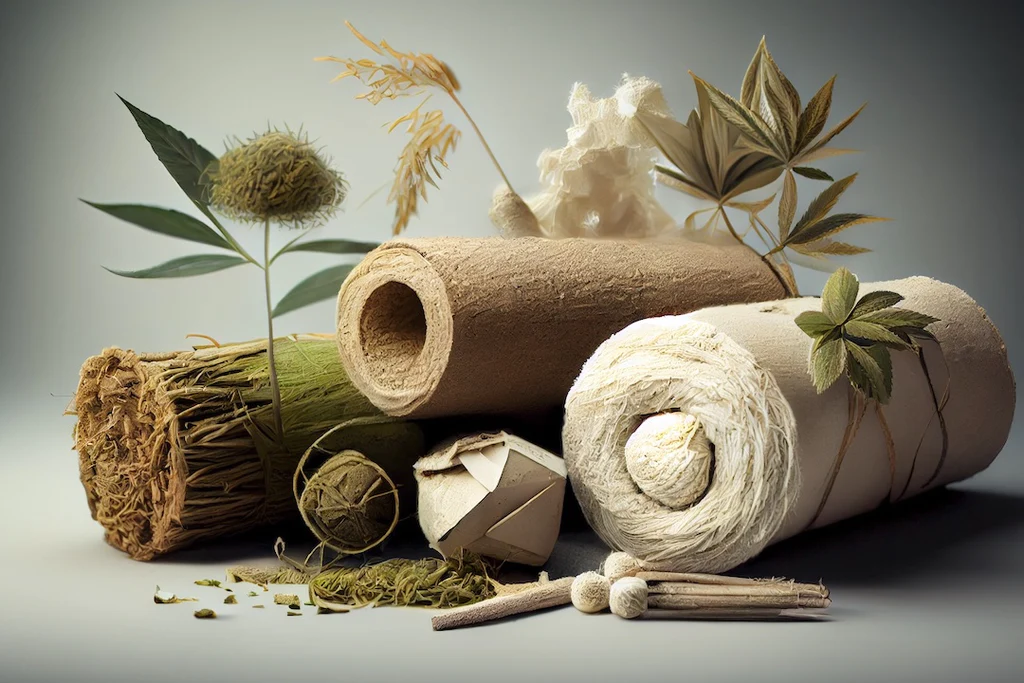Organic cotton and linen have captivated everyone due to their sustainable attributes. However, one may contemplate the other offerings within sustainable fashion. Prepare yourself for a remarkable experience as we present a selection of extraordinary environmentally sustainable materials that surpass conventional alternatives.
1. Mirum
MIRUM®, a pioneering plant-based material, is transforming various industries, including fashion accessories, footwear, consumer electronics, and other sectors. MIRUM distinguishes itself via its unwavering dedication to sustainability, as it lacks synthetic or plastic components, revolutionizing the industry. MIRUM, a company recognized for its commitment to sustainability, has obtained certification from the USDA’s preferred program, affirming that its materials are composed entirely of bio-content. This distinction positions MIRUM as a trailblazer in the field of sustainable materials. The product is composed solely of natural components, guaranteeing its recyclability when reaching the end of its lifespan, whether repurposed as a bag, shoe, or belt. MIRUM achieves the dual objectives of reducing its environmental impact and optimizing operational efficiency by utilizing ample plant material and repurposed agricultural byproducts. Indian brands such as Anita Dongre and Beej are rapidly adopting Mirum, a popular choice for purses and other accessories.
2. Piñatex
Piñatex is a textile material derived from the fibres of pineapple leaves, catering to environmentally concerned individuals with an affinity for tropical fashion. The fabric in question is a unique creation derived from the byproducts of the pineapple industry: utilizing pineapple leaves that would otherwise be discarded as waste. Piñatex emulates the tactile qualities inherent in conventional fabrics and is frequently employed in fabricating bags, footwear, and accessories. The combination of fruit-inspired aesthetics and sustainable design makes this fashion item a triumph in style and environmental consciousness.
3. Hemp
Hemp, a traditional textile, is experiencing a resurgence in popularity. The cultivation of this particular plant necessitates a small amount of water, exhibits rapid growth without reliance on pesticides, and possesses inherent biodegradability. From hemp-based denim trousers to comfortable knitted garments, this textile exemplifies the enduring relevance of environmental awareness in fashion.
4. Econyl
The textile in question is produced using repurposed nylon materials, specifically abandoned fishing nets and remnants of fabric. Econyl demonstrates a reduction in plastic waste and energy conservation in comparison to the production of virgin nylon. Engage in aquatic activities within the transparent seas while maintaining a sense of ethical responsibility, being aware that your choice of swimwear contributes to the commendable efforts to mitigate pollution.
5. Ecovero
The product is derived from wood and pulp that is managed sustainably, and rigorous environmental guidelines conduct its production process. Ecovero exhibits favourable attributes like softness and breathability and has less ecological impact than conventional viscose. Adorn oneself in garments made from Ecovero fabric to create a sustainable fashion statement that provides both aesthetic and tactile satisfaction.
6. Tencel
The textile is obtained from cellulose fibres, often from eucalyptus trees. The production process exhibits a high level of environmental sustainability, characterized by limited water consumption and a closed-loop system that facilitates the recycling of solvents. Tencel exhibits excellent draping characteristics and high breathability, making it an ideal fabric choice for flowing skirts, blouses, and activewear.
7. Banofi
Banofi is a term that refers to a specific concept or entity. Banofi aims to transform the fashion industry through the implementation of sustainable practices and the avoidance of cruelty towards animals. The plant-based leather the company produces utilizes residual materials from banana crops, providing consumers with an ethical substitute that nearly resembles conventional leather in appearance, texture, and fragrance. India, the foremost global banana producer, is the optimal geographical setting for Banofi’s pioneering methodology. India’s surplus of abandoned banana crop material, which yields approximately 4 tons of garbage for every ton of fruit, is a lucrative resource for the corporation. Banofi aims to revolutionize the field of materials by converting residual waste from banana crops into high-quality leather goods, aiming to promote sustainability within the luxury fashion industry.
When seeking a fashionable and environmentally conscious addition to one’s wardrobe, it is advisable to explore using these textiles.

